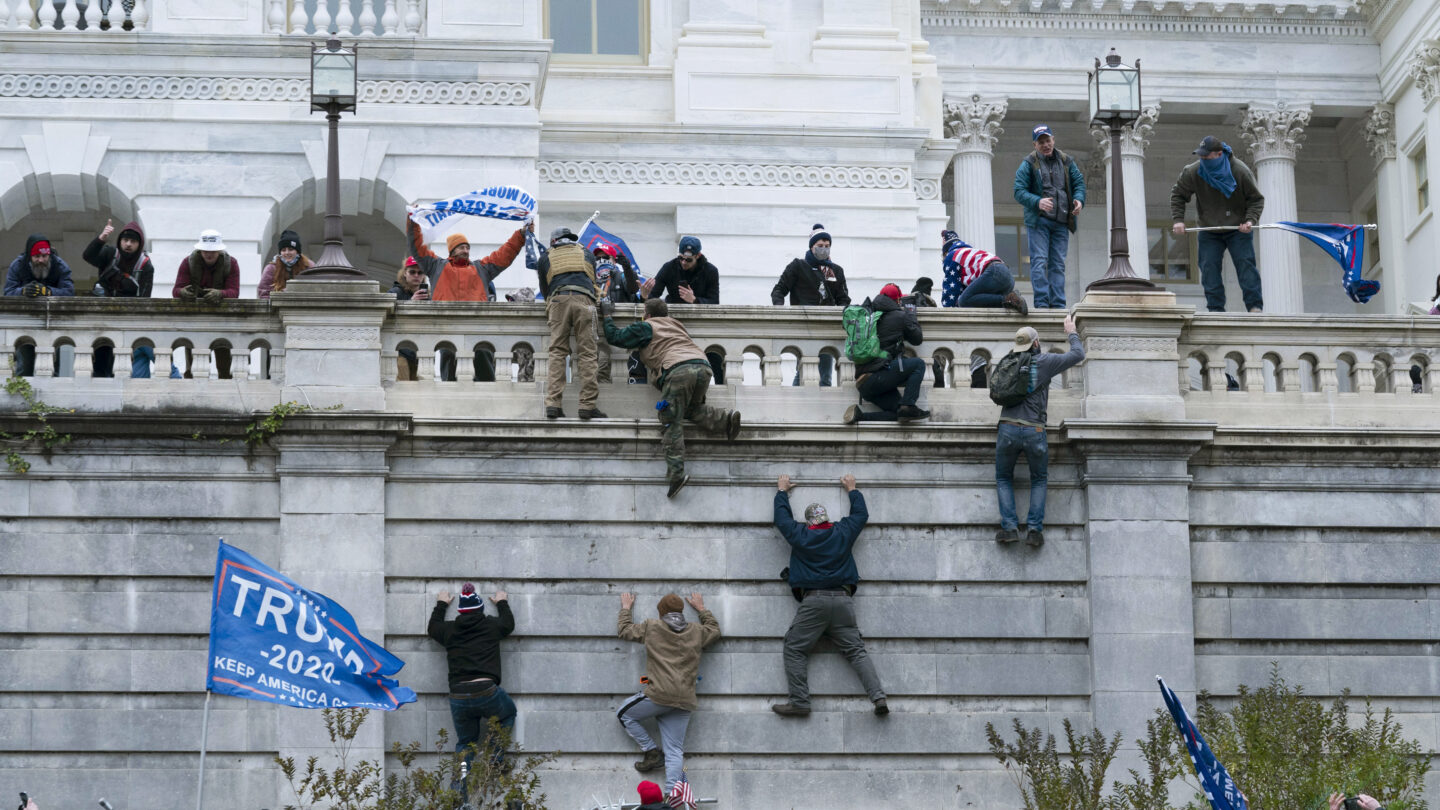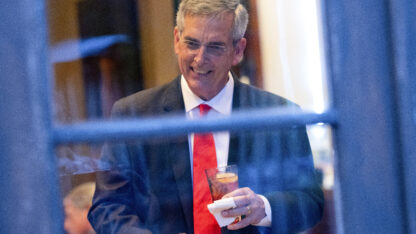The Justice Department is racking up convictions in its investigation into the Jan. 6, 2021, attack on the U.S. Capitol, charging more than 800 people with crimes related to the deadly assault, securing three guilty pleas on the rare charge of seditious conspiracy and winning the cooperation of insiders from far-right groups.
But even as its investigation has heated up and fanned further out in recent months, the department has been hammered by lawmakers and political progressives who say it hasn’t gone far enough.
Now, the congressional committee tasked with looking into the Jan. 6 riot is holding a series of public hearings on the insurrection this month, leaving many more to wonder about the progress of criminal prosecutions in what President Biden and many others call an attack on democracy.
“We will follow the facts wherever they lead,” Attorney General Merrick Garland told graduates at Harvard University’s commencement ceremony last month.
Of late, prosecutors have intensified efforts to investigate backers of political rallies in 2020 and early 2021, issued subpoenas to Stop the Steal figures and interviewed state legislators about an effort to disrupt certification of the 2020 presidential election results with fake slates of electors.
That is all happening, though, nearly a year and a half after violent rioters broke into the Capitol and stormed the halls with plans to kill then-Vice President Mike Pence and senior Democratic lawmakers.
“The pace can be frustrating,” said former public corruption prosecutor Randall Eliason, “but there’s every indication that Garland is doing exactly what he promised: starting at the bottom, working up the ladder and following it as high as it goes. It’s the classic approach to a large case like this, but it does take some time.”
Eliason pointed to the arrest of former Trump trade adviser Peter Navarro last week on criminal contempt of Congress charges, only days after Navarro himself disclosed that he had received a subpoena from a grand jury in Washington, D.C.
“I think the Navarro subpoena is just the latest sign that’s what is happening,” said Eliason, who teaches at George Washington University’s law school. “That and other developments are signs of a massive investigation proceeding about as we should expect.”
What deserves constitutional protection and what crosses a legal line
Deputy Attorney General Lisa Monaco outlined some of her thinking in a rare public interview this year at her alma mater, the University of Chicago.
“We look at and investigate the crimes in front of us, and then we work our way up,” Monaco said. “It’s very important to do that in a methodical way so that people don’t think you are starting from an assumption. … Letting the facts guide you, not letting your assumptions.”
That approach “should give people confidence that we are investigating conduct and not people and not viewpoints,” she said.
Monaco seemed to be referring to the First Amendment defense advanced by former President Donald Trump, his onetime lawyer Rudy Giuliani and others in response to civil lawsuits over the Jan. 6 violence.
The Justice Department’s senior-most officials have said peaceful advocacy of a particular viewpoint or ideology deserves constitutional protection. But, they’ve argued, violent threats cross the legal line.
This week, a grand jury in Washington, D.C., indicted Enrique Tarrio, the leader of the far-right Proud Boys group, and four associates for seditious conspiracy — essentially, an attempt to overthrow the government by force. Eleven members of the Oath Keepers, including founder Stewart Rhodes, already face that rare sedition charge.
Pressure to go after people not at the Capitol that day, like Trump
But with only a few exceptions, federal prosecutors have yet to take public action against people not on the grounds of the U.S. Capitol during the riots. Left-leaning nonprofit groups are among those pushing the Justice Department to do and say more.
Legal analysts at the Project on Government Oversight urged department leaders to explain the scope of the department’s investigation and identify whether any legal authorities bar the Justice Department from charging Trump with a possible crime.
“We cannot simply trust in the Justice Department’s willingness to hold a former president accountable,” they wrote.
Jeff Hauser, executive director of the Revolving Door Project, has warned the Justice Department that its failure to prosecute corrupt corporate executives and public officials already has led to a loss of confidence in institutions.
“The Justice Department is the only body capable of prosecuting those who raided the Capitol,” Hauser said. “This is the most important chance in at least a generation to hold to account the powerful criminals who would undermine the government from within.”
Three people with federal prosecution experience told NPR that in their view, the Justice Department has been proceeding fairly swiftly with its work on the Jan. 6 attack. But some former prosecutors such as Kristy Parker and Barbara McQuade have drafted and published their own analyses about Trump and his legal jeopardy.
“When the evidence of Trump’s intentions and actions is viewed through the lens of the cases the Department and the Select Committee are building — including evidence of the ties between the foot soldiers who led the Jan. 6 riots and Trump’s inner circle — and in the context of the cases the Department has already prosecuted against other Jan. 6 defendants, it looks formidable, not weak,” Parker wrote in a recent post on the website Just Security.
Copyright 2022 NPR. To see more, visit https://www.npr.org.
9(MDAxODM0MDY4MDEyMTY4NDA3MzI3YjkzMw004))

9(MDAxODM0MDY4MDEyMTY4NDA3MzI3YjkzMw004))








